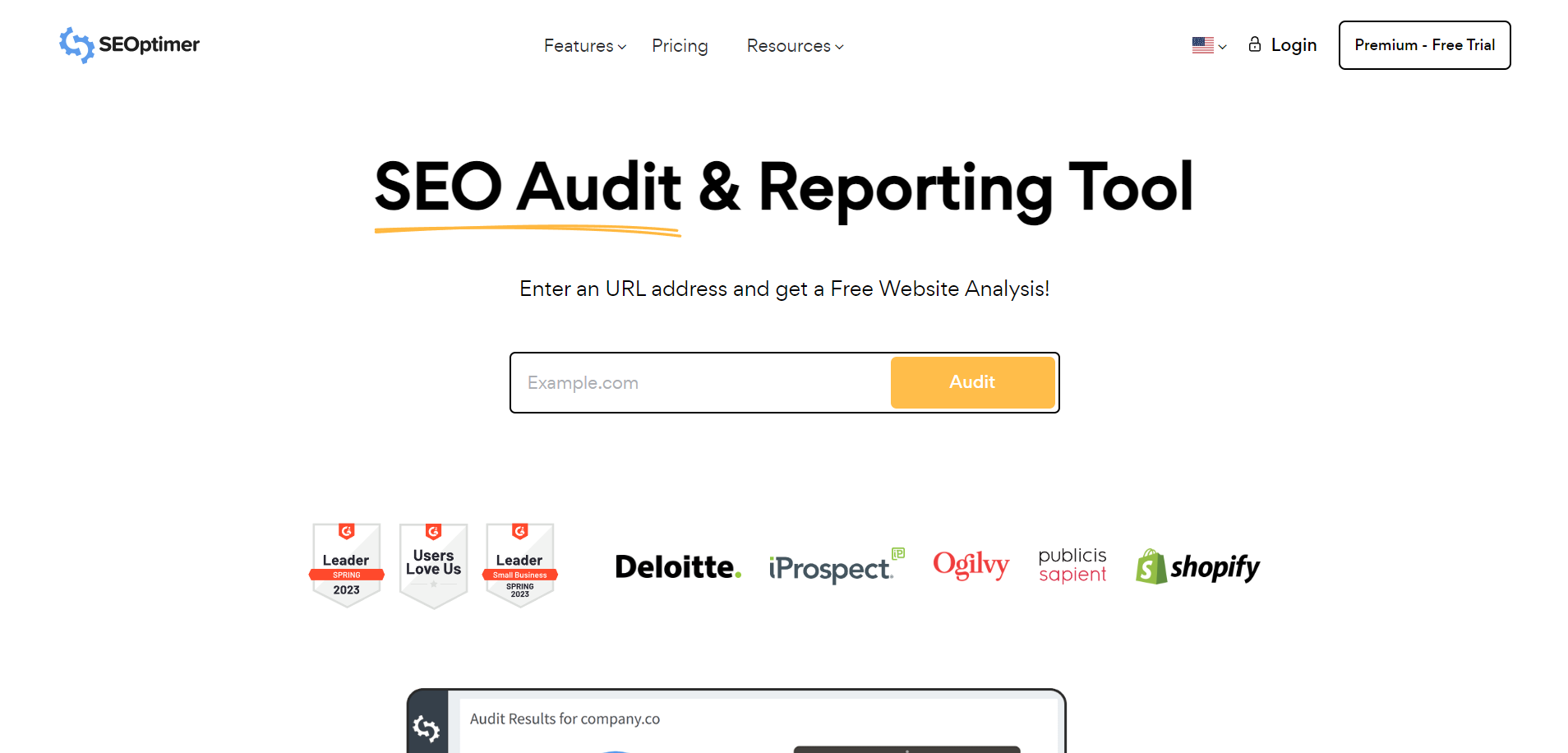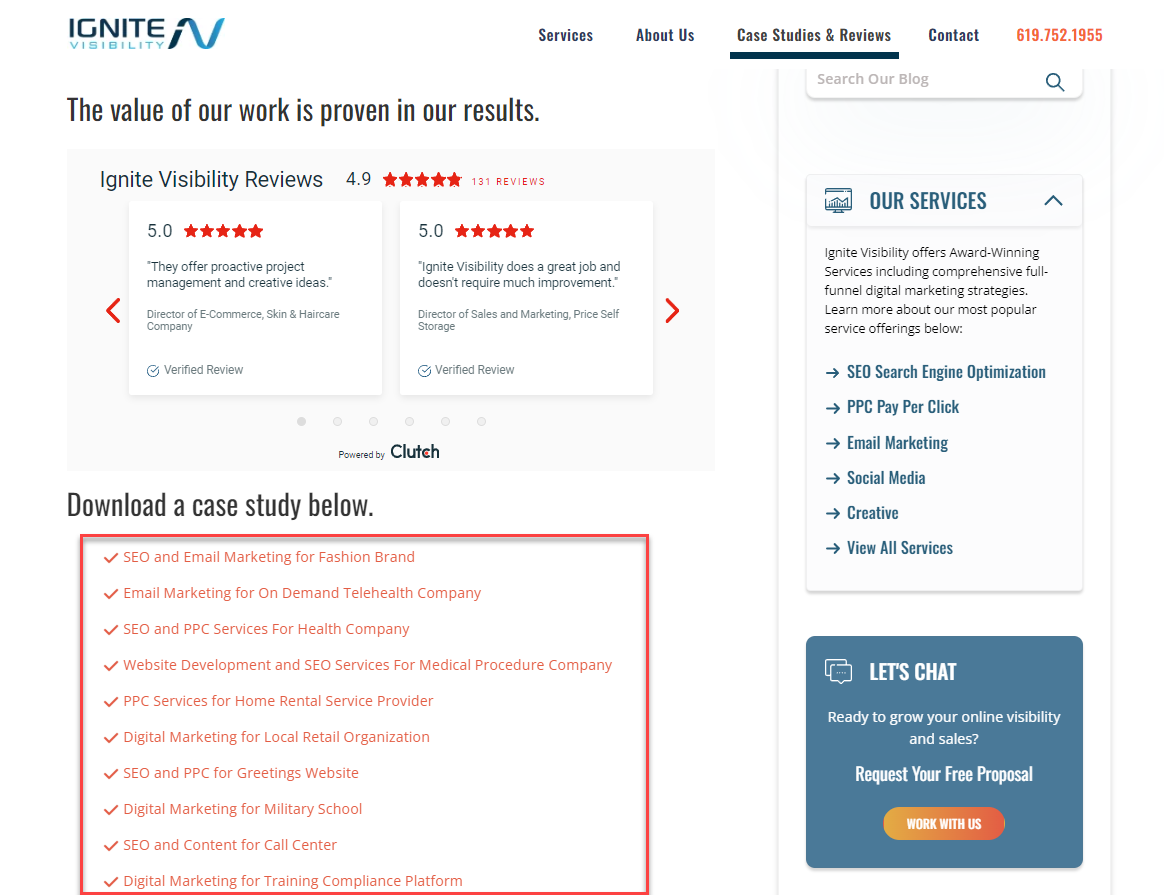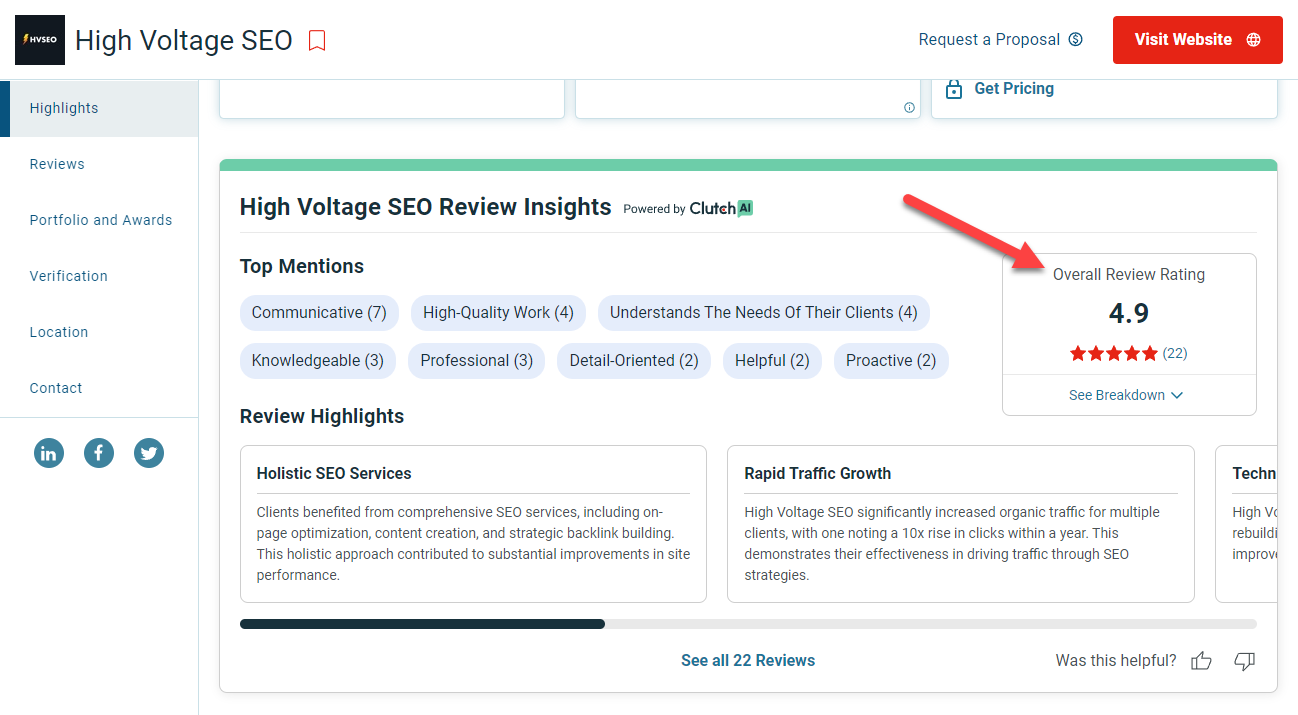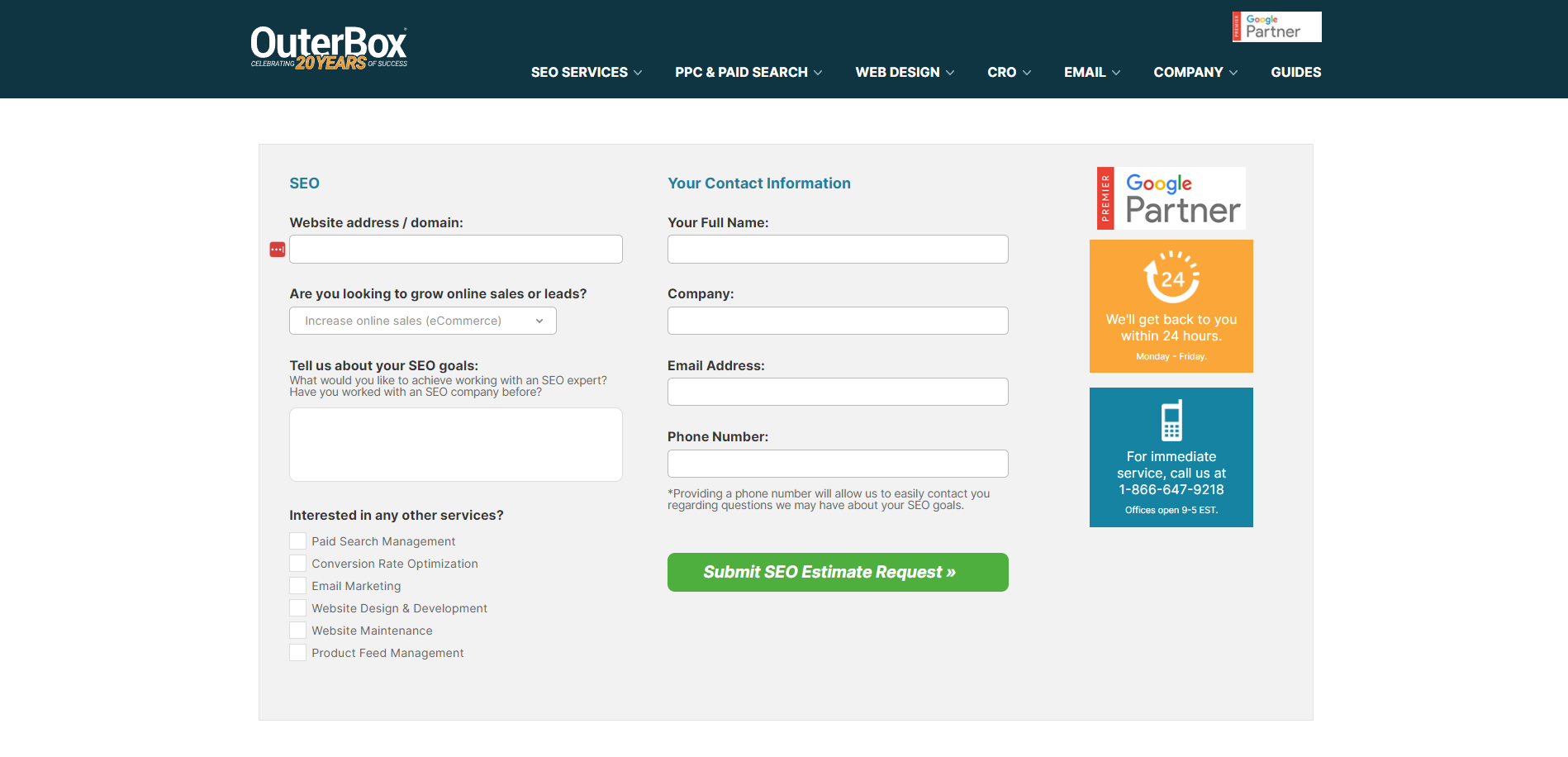Struggling to get your website to the top of Google? Imagine unlocking your full online potential, getting more targeted traffic and beating your competitors.
An SEO audit could be the answer you need, but one question holds businesses back: “How much does it cost?”
The truth is, SEO audit costs can range from a few hundred to tens of thousands.
But here’s the real secret: the price tag doesn’t always reflect the value you’ll get.
In this post we’ll go into SEO audit pricing. You’ll learn the factors that affect costs, the types of audits and how to get the most out of your investment. By the end of this you’ll know how to choose the right SEO audit for your business and budget and be ready for explosive online growth.
How much does an SEO audit cost?
An SEO audit costs between $650 to $14,000.
A basic SEO audit can cost between $650 to $2,000 for small websites or new businesses. This type of audit covers basic on-page elements, basic technical issues and a high level overview of your site.
Mid-range SEO audits for medium sized businesses or established websites cost between $2,000 to $7,500. These audits go deeper, including technical SEO, content evaluation and competitor analysis.
For large enterprises, e-commerce sites or complex websites expect to pay $7,500 to $14,000 or more for a full SEO audit. These high end audits cover everything SEO and often include custom solutions and strategic recommendations for your business.
Some agencies or consultants may offer ongoing SEO audit services as part of a monthly retainer which can range from $1,000 to $5,000 per month depending on the level of service and frequency of reporting.
Expedited SEO audits cost significantly more, often doubling the expenses based on the number of pages in a website. Rush services can speed up the auditing process, but it is advisable to communicate deadlines early to avoid complications.

You might stumble upon sites that offer a free SEO audit. However, these are often offered as an introductory service that provides a basic assessment of a website's SEO standing. While they may attract potential clients such as yourself, they are typically less comprehensive and often automated, offering limited actionable insights, which they'll use as a tripwire for their paid options.
SEO Audit Cost Factors
Several factors come into play when determining the cost of an SEO audit for your website. Here are the ones to consider.
Despite the varying costs, the return on investment (ROI) from an SEO audit is typically high, making it a crucial step for businesses looking to improve their online presence. This highlights the seo audit worth for enhancing website performance and visibility.
Types of SEO Audits
Knowing the types of SEO Audits available is key when considering the cost of an audit. Conducting a comprehensive SEO audit is essential to thoroughly examine a website's various elements, including technical SEO, content, and backlink analyses. Each type focuses on specific areas of your website’s SEO and has its price range.
Note: Charles offers all of the audit types below. If you want him to audit your site, book an SEO Audit to schedule a call with him.
Basic SEO Audit
A basic SEO audit covers basic on-page elements including meta tags, content quality and basic technical issues. This type of audit is for small websites or new businesses just starting with SEO. Basic audits cost between $500 to $1,500. They give you a high level overview of your site but may not go deep into complex issues or provide detailed recommendations.
Full SEO Audit
A full audit gives you a deeper analysis of your website’s SEO performance. It includes all of the basic audit plus technical analysis, content strategy evaluation and competitor research. This is for medium to large businesses looking for significant SEO improvements. A full SEO audit costs between $1,500 to $7,500 depending on the site and the auditor.
A comprehensive SEO audit report is crucial in enhancing website performance and driving revenue. It provides a detailed analysis and actionable insights that help improve SEO strategies.
Technical SEO Audit
A technical SEO audit focuses on the backend elements of your website that affect search engine crawling and indexing. This includes site speed, mobile-friendliness, URL structure, XML sitemaps and robots.txt configuration. Technical audits are for large websites or those with specific technical issues. Technical SEO audits cost between $1,000 to $5,000 depending on the size of the site and the level of analysis required.
Content SEO Audit
Content SEO audits, also known as content audits, are a thorough evaluation of a website's content, including service pages and blog posts. This includes keyword analysis, content structure, internal linking and overall content strategy. Content audits are for websites with a large number of pages or those focused on content marketing. Content SEO audit costs range from $1,000 to $3,000, depending on the amount of content to be audited.
Local SEO Audit
For businesses targeting local customers a local SEO audit looks at factors specific to local search. This includes Google Business Profile optimisation, local citation consistency and local link building opportunities. Local SEO audits are generally cheaper, $300 to $1,500 as they focus on a smaller set of factors.
E-commerce SEO Audit
E-commerce websites require specialized audits that take into account unique factors like product page optimisation, category structure and schema markup. These audits are more complex due to the number of pages and technical considerations involved. E-commerce SEO audits cost between $2,000 to $10,000 depending on the size of the online store and the level of analysis.
Website Size and Complexity
The size of your website impacts the cost of the audit. Larger sites with thousands of pages take more time and resources to audit thoroughly. A small business website with 10-20 pages will cost less to audit than an e-commerce site with thousands of product pages.

Complex navigation, multiple subdomains and e-commerce functionality increase the complexity and cost of the audit.
Level of Analysis Required
The level of detail required from your SEO audit impacts the cost. A surface level audit might cover basic on-page elements, a deep dive might cover on-page SEO, technical SEO, off-page SEO and local SEO. More in-depth audits provide more insight but cost more due to the time and expertise required.
Auditor’s Expertise
The auditor’s experience and skill level also impact pricing. Seasoned professionals cost more but bring more value. Experts in a specific niche cost more and those with a history of successful projects charge premium rates.
Also the type of professional that will do the SEO audit on your site impacts the cost. Here are three of the most common SEO audit options:
-
Freelancers - They offer more competitive rates, from $500 to $7,500 for a full audit. Junior freelancers will cost on the lower end, $500 to $1,500 and experienced SEO consultants will cost $2,000 to $7,500 or more, depending on the scope and depth of the audit.
-
Agencies - They cost more due to overhead and team based approach. Expect to pay $1,000 to $20,000 for an agency led SEO audit. Small to medium sized agencies will offer audits in the $1,000 to $5,000 range, larger more established agencies will cost $5,000 to $20,000 or more for enterprise level audits.
-
In-house SEO Teams - For businesses that want to do audits in-house the cost is less direct but still significant. You’ll need to factor in the salary of SEO specialists (average $50,000 to $100,000 per year) and the cost of SEO audit tools and software subscriptions (average $1,000 to $5,000 per year). This approach can be cost effective for ongoing audits but requires a big upfront investment in hiring and training.
A professional SEO audit requires skilled analysis and can impact the pricing based on the depth of the service provided.
DIY SEO Audit vs Professional Audit
When considering an SEO audit you might wonder if you should do it yourself or hire a professional. Both have their pros and cons and understanding these will help you make a decision.
DIY SEO audits are cost effective, you can start immediately and get intimate with your website. However they can be time consuming especially if you’re new to SEO. You’ll spend hours learning the process and tools and may miss critical issues due to lack of experience. Free tools only provide surface level insights and limit the depth of your analysis. SEO audit tools can help conduct audits and provide actionable insights for optimization, ranging from free options like Google Search Console to premium services.
Professional SEO audits give you access to experienced professionals with broad knowledge. They do a comprehensive analysis with advanced tools and deliver actionable insights based on industry best practices. The process is generally faster than DIY, with a quicker turnaround than DIY efforts. However professional audits are more expensive and don’t provide as much hands on learning. Misalignment is also risky if your goals aren’t communicated effectively.
Regarding cost, DIY audits are free monetarily but require a big-time investment. Depending on the size and complexity of your website, a DIY audit can take 20 to 100+ hours of work. As mentioned earlier, professional audits can cost from $650 to $14,000 or more, depending on the scope and service provider.
Deciding between DIY and professional audits depends on your situation. DIY might be suitable if you have a small simple website, a tight budget with time to invest, want to learn SEO in depth or if your website is in a non competitive niche.
Conversely, a professional audit is often the better choice for large or complex websites, highly competitive industries or if you don’t have the time or inclination to learn advanced SEO. It’s also if your website is key to your business or if you need expert insights to outperform competitors.
For many businesses, a hybrid approach can work. You can start with a basic DIY audit to get to know your website’s SEO situation then invest in a professional audit to uncover deeper issues and opportunities. This way you can balance cost, learning and expertise.
Tools and Technologies Used
High quality SEO audits use a combination of manual analysis and advanced tools. Premium SEO software subscriptions, custom analysis tools and AI powered technologies allow for more data collection and analysis and can justify a higher audit cost.
A comprehensive technical audit is crucial for evaluating technical aspects such as toxic backlinks and duplicate content.
Timeframe for Completion
The urgency of your audit can affect the cost. Rush jobs incur extra fees while in depth audits take more time but provide more value. Be wary of super quick turnarounds for complex sites as this may mean a less thorough analysis.
How to Choose the Right SEO Audit Service
Choosing the right SEO audit service is key to getting valuable insights and actionable recommendations. Partnering with a skilled SEO agency can result in detailed assessments and actionable recommendations for improving a website's performance. To make a decision consider:
Look at Case Studies
Look at published case studies on the service provider’s website to understand their approach and results.

Analyze how these studies relate to your website type and industry. Look for specific metrics like improved rankings, increased organic traffic or enhanced conversion rates. See the strategies they implemented and the timeframe for results.
Consider the complexity of the projects they’ve worked on. If they’ve done websites similar to yours in size and scope it’s a good sign of their capability. Also see how they present their case studies – clear data driven narratives means they have a methodical approach to SEO auditing and implementation.
Check Online Reviews
Look at reviews on Clutch, BBB, Trustpilot, and Google. These give you insight into client satisfaction and the provider’s reputation.

Look for recurring themes in positive and negative reviews. See comments about the thoroughness of their audits, clarity of their recommendations, and communication style.
Most importantly, see how the service provider responds to negative reviews. Their responses show their customer service approach and problem-solving skills. A company that responds professionally to criticism and tries to resolve the issue shows accountability and commitment to client satisfaction. Be wary of providers with only positive reviews that seem fake, as those might be manipulated.
Get a Free Quote
Book a call with the service provider to get a custom quote and assess their expertise. Use this opportunity to ask detailed questions about their audit process, the tools they use and how they approach different types of websites. Ask about their experience in your industry and how they stay up to date with the latest SEO trends and algorithm changes.

During the call pay attention to how well they listen to your needs and goals. A good SEO audit service should ask about your business objectives, target audience and current SEO challenges. They should be able to explain their process in plain English and provide a rough timeframe for the audit.
Talk about deliverables and post audit support. A full audit should include a detailed report with actionable recommendations not just a list of issues. Ask about their approach to prioritizing fixes and if they offer guidance on how to implement their suggestions. This is also your chance to see their communication style and responsiveness which is important for a smooth working relationship.
Get the Most Out of Your SEO Audit Investment
An SEO audit is a big investment in your website’s future performance but the real value is in how you use the insights. To get the most out of your SEO audit follow these tips for preparation, implementation and ongoing optimisation.
Comprehensive audits are essential to enhance a website's performance, internal and external linking strategy, and overall digital presence, which ultimately contributes to better search engine visibility over time.
Set Clear Goals and Expectations
Before you start an SEO audit define specific, measurable objectives. These could be to increase organic traffic by a certain percentage, increase conversions from search or rank for specific high value keywords. Tell your auditor these goals as they will shape the focus and depth of the audit.
Talk to the service provider about the scope, timeline and deliverables of the audit. Be clear about what you consider success. This will ensure the audit aligns with your business objectives and provides insights that are relevant to you.
Get Ready with Information and Access
Collect all the necessary data and grant access to your website and analytics tools. This includes Google Analytics, Google Search Console and any other SEO or marketing platforms you use. Provide historical data on past SEO efforts, content strategy and any known issues or challenges.
Prepare a detailed brief about your business, target audience and competitive landscape. Include information about your products or services, unique selling points and any industry specific factors that might impact SEO. The more information you provide the more targeted and valuable the audit will be.
Putting Recommendations into Action
Once you get the audit report, prioritise the recommendations based on impact and resource required. Create a plan of implementation, start with quick wins and high impact changes. Don’t try to do everything at once instead develop a phased approach that matches your resources and capabilities.
Make sure you understand each recommendation fully. If anything is unclear ask the auditor for clarification or guidance. Consider involving your development team, content creators and other relevant stakeholders early on in the implementation process to make it smooth.
Measure and ROI
Set up a system to measure the impact of the changes you make based on the audit recommendations. Use analytics tools to track key performance indicators (KPIs) such as organic traffic, rankings, click through rates and conversions. Set up regular reporting to track progress over time.
Don’t expect overnight results; SEO improvements take weeks or months to show up. But by monitoring your metrics consistently you can see trends and adjust your strategy as needed. Compare your results against your original goals to measure the ROI of your SEO audit investment.
Ongoing Learning and Evolution
Use the audit as a learning exercise for your business. Understand the logic behind each recommendation and how it relates to SEO best practice. This will help you make informed decisions about your SEO strategy going forward.
Stay up to date with SEO trends and algorithm updates that might impact your website. Consider scheduling regular follow-up audits or ongoing SEO monitoring to keep your site visible and improving over time.
Summary
SEO audits are crucial for visibility and performance. Costs vary depending on website complexity, audit depth and provider expertise but the ROI is worth it. Knowing the types of audits, choosing the right provider and putting recommendations into action can make a big difference to your search engine performance and organic traffic.
An SEO audit gives you a roadmap for ongoing optimisation, insight into your website’s strengths and weaknesses. A competitive audit evaluates the websites of both the user and their competitors, providing a scorecard or comparison chart that identifies strengths and weaknesses. This allows data driven decisions to improve your online presence. The value is in acting on the findings and monitoring progress.
If you're looking for someone who can not only audit your website based on your needs but also provide you with insights on how to approach and fix them that no other SEO auditor can do, Charles Floate is your guy! Choose from his various SEO audit services to get started!

